Finding a new place to live or work can be exciting. Between hunting for the perfect location and envisioning your new life there, it’s easy to get swept up in the enthusiasm. However, before you rush to sign the lease agreement, it’s vital to take a step back and meticulously review the terms. A lease agreement is a legally binding contract that outlines the rights and responsibilities of both the landlord and tenant. Failing to understand its terms can lead to financial headaches, unexpected restrictions, and ultimately a space that doesn’t meet your hopes or your needs. What’s worse, you may have to continue paying for the space even if you are not using it.
Here’s why taking the time to carefully review your lease agreement is crucial:
- Understanding Your Financial Obligations: Rent is likely the biggest financial commitment outlined in the lease agreement. However, it’s not always the only cost. The agreement will specify who is responsible for utilities, trash removal, and other potential fees. Are there late payment penalties? Are there fees for parking or other amenities you will need? In the case of a commercial lease, are there restrictions on the hours you can do business? Are there clauses on sharing revenue that might impact your bottom line?
- Knowing Your Rights and Responsibilities: A lease agreement isn’t just about what the landlord expects from you; it also outlines your responsibilities as a tenant. Are there restrictions on pets? Can you make modifications to the property? Knowing your responsibilities before you sign lets you take everything into account while there’s still time to weigh the decision.
- Maintenance and Repairs: Responsibilities for maintenance and repairs should be clearly defined in a lease agreement. The document will typically specify which repairs the landlord is responsible for and which ones fall to the tenant. Understanding these divisions of responsibility is crucial to avoid disputes and ensure a timely response to any maintenance needs that may arise.
- Term and Termination: The lease agreement should clearly state the duration of your tenancy, typically measured in months or years. It should also outline the process for termination, including any required notice periods for both the landlord and tenant. Are there early termination penalties? Does the lease automatically renew at the end of the term, and if so, how far in advance do you need to cancel to avoid an automatic renewal?
- Dispute Resolution: A well-crafted lease agreement will often include a dispute resolution clause outlining the steps to be taken in the event of an issue. This might involve mediation or arbitration before resorting to court action. Knowing the process for resolving disputes can save time and money in the long run.
Tips for Reviewing Your Lease Agreement
- Read Carefully: This may seem obvious, but it’s worth emphasizing. Don’t skim the document. Read every clause and paragraph carefully, taking note of any terms you don’t understand and googling them until they make sense.
- Ask Questions: If there’s anything in the lease agreement that seems unclear or ambiguous, don’t hesitate to ask the landlord for clarification. Sometimes not even the landlord will understand a lease clause that may be inherited for decades and no longer applies.
- Don’t Be Afraid to Negotiate: While some lease agreements may be presented as standard and non-negotiable, there’s often some room for discussion. If a particular term seems unreasonable, such as a short notice period for termination, politely inquire about the possibility of revising it.
- Consider Seeking Legal Counsel: For most lease agreements, particularly those involving spaces that can impact your business’ success or failure, consulting with an attorney can be a wise investment. A lawyer can ensure the agreement protects your interests and adheres to local landlord-tenant laws.
Don’t let excitement cloud your judgment; a careful review can prevent financial surprises, ensure a comfortable living or working environment, and empower you to hold your landlord accountable. By taking the time to meticulously review your lease agreement, you’re setting yourself up for a smoother and more secure tenancy.

